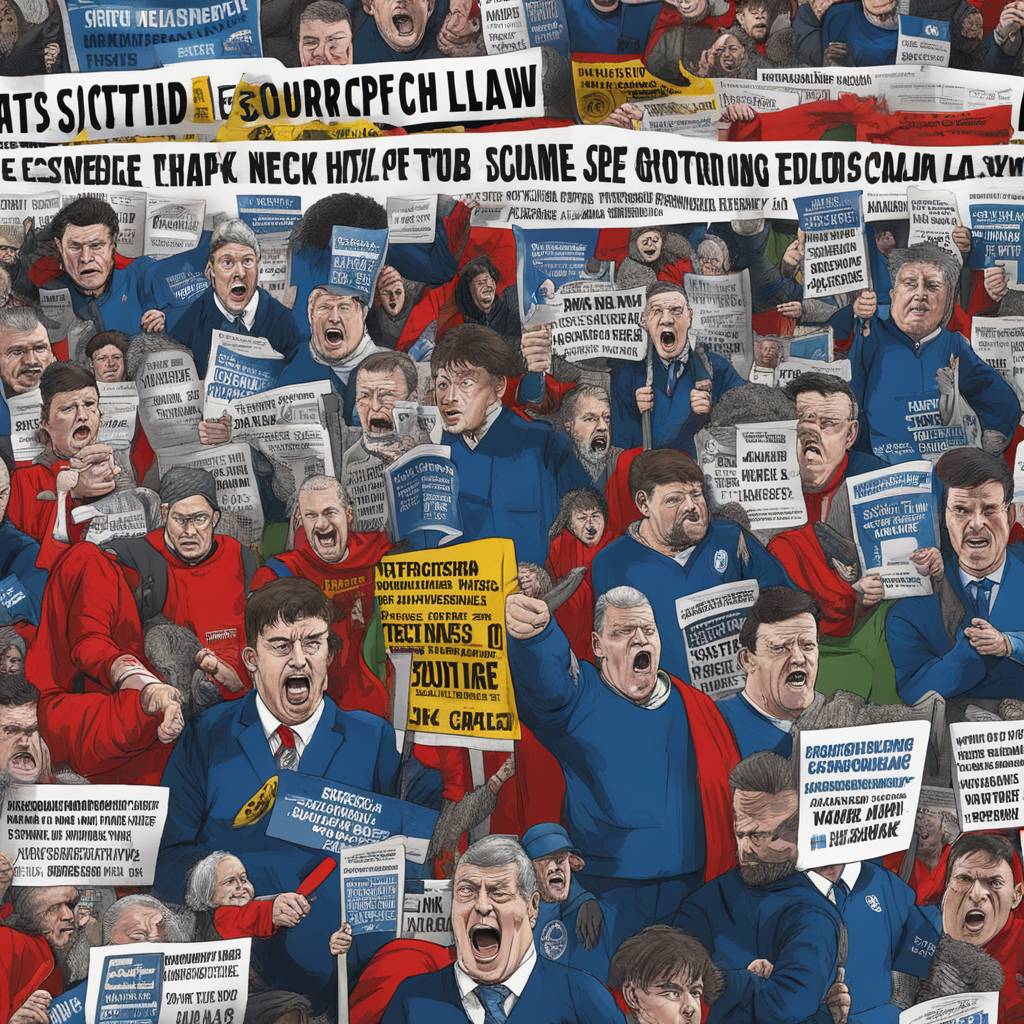A new hate speech law went into effect in Scotland, expanding protections for marginalized groups and criminalizing behavior that stirs up hatred. The law creates a new charge of “stirring up hatred,” which could result in fines and prison sentences of up to seven years. The protected classes include age, disability, religion, sexual orientation, and transgender identity, but notably omit women as a protected group. Criticism of the law has been mounting, with authors like J.K. Rowling speaking out against it due to concerns about potential abuse by activists.
Despite concerns raised by critics, the law has had the support of Scotland’s first minister, Humza Yousaf. Yousaf has defended the law, stating that the threshold for criminality is high and that it will ultimately be up to the police and the crown to determine if a crime has been committed. The law was introduced following a 2018 study that recommended updating the country’s hate crimes laws, and ultimately passed with an 82-32 vote in March 2021. Supporters of the legislation argue that it is essential in combating harassment and protecting vulnerable individuals.
However, opposition to the law has been strong, with critics arguing that it is dangerous and unworkable. The Scottish Conservative Party, among others, has raised concerns about potential abuse of the law. Concerns have been raised that individuals like J.K. Rowling could face police scrutiny for expressing what they view as reasonable opinions. Despite this pushback, Yousaf has defended the law, pointing to the existing 1986 law covering racial hatred as precedent for the new legislation, emphasizing the importance of protecting individuals based on factors like sexuality, disability, and religion.
The issue of how the Scottish government should address misogyny has also been a point of contention. A government-commissioned task force recommended in 2022 that protections for women be added in a separate bill similar to the hate crimes legislation. Former first minister Nicola Sturgeon welcomed the report, promising full consideration, but little progress has been made in Parliament. Yousaf has indicated his support for addressing misogyny in a similar manner to hate crimes legislation but no concrete steps have been taken yet. The debate over how to balance protecting marginalized groups while also preserving free speech rights continues to be a contentious issue in Scotland.








